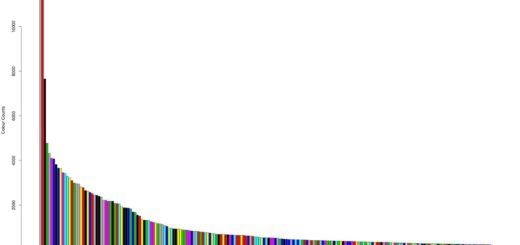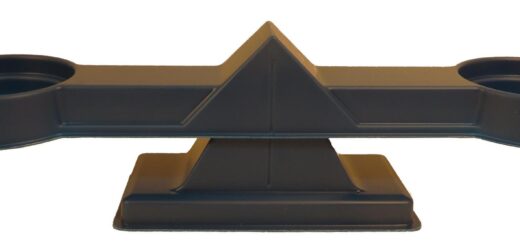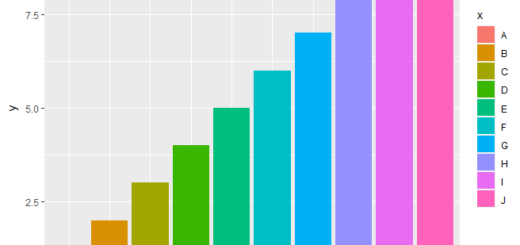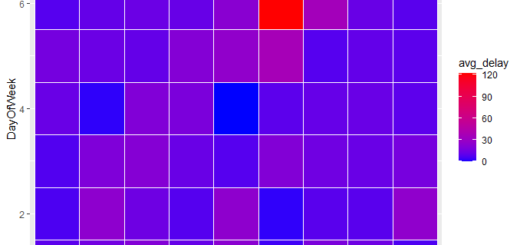Remove rows that contain all NA or certain columns in R?
Remove rows that contain all NA or certain columns in R?, when coming to data cleansing handling NA values is a crucial point.
If we have missing data then sometimes we need to remove the row that contains NA values, or only need to remove if all the column contains NA values or if any column contains NA value need to remove the row.
In this article, we are going to discuss how to remove NA values from a data frame.
How to clean the datasets in R? » janitor Data Cleansing »
Remove rows that contain all NA or certain columns in R?
1. Remove rows from column contains NA
If you want to remove the row contains NA values in a particular column, the following methods can try.
Method 1: Using drop_na()
Create a data frame
df=data.frame(Col1=c("A","B","C","D",
"P1","P2","P3")
,Col2=c(7,8,NA,9,10,8,9)
,Col3=c(5,7,6,8,NA,7,8)
,Col4=c(7,NA,7,7,NA,7,7))
dfCol1 Col2 Col3 Col4 1 A 7 5 7 2 B 8 7 NA 3 C NA 6 7 4 D 9 8 7 5 P1 10 NA NA 6 P2 8 7 7 7 P3 9 8 7
library(tidyr) df %>% drop_na(Col2)
Col1 Col2 Col3 Col4 1 A 7 5 7 2 B 8 7 NA 3 D 9 8 7 4 P1 10 NA NA 5 P2 8 7 7 6 P3 9 8 7
QQ-plots in R: Quantile-Quantile Plots-Quick Start Guide » finnstats
Method 2: Using is.na()
Create a data frame
df=data.frame(Col1=c("A","B","C","D",
"P1","P2","P3")
,Col2=c(7,8,NA,9,10,8,9)
,Col3=c(5,7,6,8,NA,7,8)
,Col4=c(7,NA,7,7,NA,7,7)) df[!is.na(df$Col3),]
Col1 Col2 Col3 Col4 1 A 7 5 7 2 B 8 7 NA 3 C NA 6 7 4 D 9 8 7 6 P2 8 7 7 7 P3 9 8 7
Method 3:Using complete.cases()
df=data.frame(Col1=c("A","B","C","D",
"P1","P2","P3")
,Col2=c(7,8,NA,9,10,8,9)
,Col3=c(5,7,6,8,NA,7,8)
,Col4=c(7,NA,7,7,NA,7,7))df[complete.cases(df$Col4),]
Col1 Col2 Col3 Col4 1 A 7 5 7 3 C NA 6 7 4 D 9 8 7 6 P2 8 7 7 7 P3 9 8 7
Method 4:Using which()
df=data.frame(Col1=c("A","B","C","D",
"P1","P2","P3")
,Col2=c(7,8,NA,9,10,8,9)
,Col3=c(5,7,6,8,NA,7,8)
,Col4=c(7,NA,7,7,NA,7,7))df[-which(is.na(df$Col3)),]
Col1 Col2 Col3 Col4 1 A 7 5 7 2 B 8 7 NA 3 C NA 6 7 4 D 9 8 7 6 P2 8 7 7 7 P3 9 8 7
2. Remove Rows with contains some missing NA values
Method 1:Using na.omit() Function
df=data.frame(Col1=c(NA,"B","C","D", "P1","P2","P3") ,Col2=c(NA,8,NA,9,10,8,9) ,Col3=c(NA,7,6,8,NA,7,8) ,Col4=c(NA,NA,7,7,NA,7,7)) df
Col1 Col2 Col3 Col4 1 NA NA NA NA 2 B 8 7 NA 3 C NA 6 7 4 D 9 8 7 5 P1 10 NA NA 6 P2 8 7 7 7 P3 9 8 7
na.omit(df)
Col1 Col2 Col3 Col4 4 D 9 8 7 6 P2 8 7 7 7 P3 9 8 7
Method 2:Using complete.cases() Function
df=data.frame(Col1=c(NA,"B","C","D", "P1","P2","P3") ,Col2=c(NA,8,NA,9,10,8,9) ,Col3=c(NA,7,6,8,NA,7,8) ,Col4=c(NA,NA,7,7,NA,7,7))
df[complete.cases(df), ]
Col1 Col2 Col3 Col4 4 D 9 8 7 6 P2 8 7 7 7 P3 9 8 7
Method 3:Using rowSums() & is.na() Functions
Class Imbalance-Handling Imbalanced Data in R »
df=data.frame(Col1=c(NA,"B","C","D", "P1","P2","P3") ,Col2=c(NA,8,NA,9,10,8,9) ,Col3=c(NA,7,6,8,NA,7,8) ,Col4=c(NA,NA,7,7,NA,7,7))
df[rowSums(is.na(df)) == 0, ]
Col1 Col2 Col3 Col4 4 D 9 8 7 6 P2 8 7 7 7 P3 9 8 7
Method 4:Using Using drop_na() Function
df=data.frame(Col1=c(NA,"B","C","D", "P1","P2","P3") ,Col2=c(NA,8,NA,9,10,8,9) ,Col3=c(NA,7,6,8,NA,7,8) ,Col4=c(NA,NA,7,7,NA,7,7))
library(tidyr) df %>% drop_na()
Col1 Col2 Col3 Col4 1 D 9 8 7 2 P2 8 7 7 3 P3 9 8 7
Method 5:Using remove_empty function from janitor package
df<-df %>% remove_empty(whic=c("rows"))
df<-df %>% remove_empty(whic=c("cols"))3. Row which contains all column values that are missing
Suppose if you want to remove all column values contains NA then following codes will be handy.
Method 1:Using is.na(), rowSums() & ncol() Functions
df=data.frame(Col1=c(NA,"B","C","D", "P1","P2","P3") ,Col2=c(NA,8,NA,9,10,8,9) ,Col3=c(NA,7,6,8,NA,7,8) ,Col4=c(NA,NA,7,7,NA,7,7))
df[rowSums(is.na(df)) != ncol(df), ]
Col1 Col2 Col3 Col4 2 B 8 7 NA 3 C NA 6 7 4 D 9 8 7 5 P1 10 NA NA 6 P2 8 7 7 7 P3 9 8 7
Method 2:Using Using filter() Function
df=data.frame(Col1=c(NA,"B","C","D", "P1","P2","P3") ,Col2=c(NA,8,NA,9,10,8,9) ,Col3=c(NA,7,6,8,NA,7,8) ,Col4=c(NA,NA,7,7,NA,7,7))
library("dplyr")
filter(df, rowSums(is.na(df)) != ncol(df))Col1 Col2 Col3 Col4 1 B 8 7 NA 2 C NA 6 7 3 D 9 8 7 4 P1 10 NA NA 5 P2 8 7 7 6 P3 9 8 7
Conclusion
If you found some other useful function, please mentioned in the comment box.
Don’t forget to show your love, Subscribe the Newsletter and COMMENT below!
[newsletter_form type="minimal"]
Handling missing values in R Programming »









This is great.
Thanks Kamran
The janitor package has remove_empty() to simplify removing completely empty rows or columns.
You are right. One of our old posts clearly mentioned the same.
https://finnstats.com/index.php/2021/04/04/how-to-clean-the-datasets-in-r/
Will update it. Thanks Bill Denney.